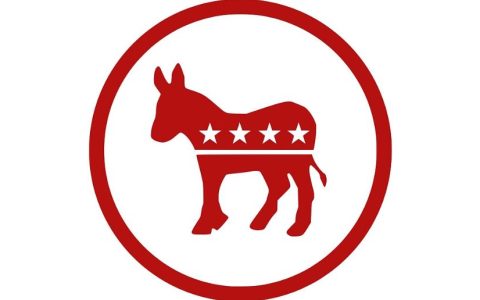
Former President Donald Trump believes he is a shoe-in for winning in 2024. But there’s one major problem with that.
Because a district judge has made a wild decision about kicking Trump off the 2024 ballots.
A Colorado judge has upheld a lawsuit that seeks to prevent former President Donald Trump from being on the state’s presidential ballot in 2024 on the grounds that he participated in “insurrection” after losing the 2020 election.
The Leftist organization Citizens for Responsibility and Ethics in Washington filed the lawsuit, and CNN reported on Friday that Colorado District Judge Sarah Wallace, appointed to her position by Democratic Governor Jared Polis, denied three motions by Trump’s legal team and the Colorado GOP to dismiss the case.
According to the lawsuit, including Trump on the ballot would be in direct violation of the 14th Amendment, which states that no person who has “insurrection or rebellion” against the United States shall be eligible for election or to hold public office.
Donald Trump’s detractors call the infiltration of the Capitol on January 6, 2021, an “insurrection” that was at least partially encouraged by Trump.
Judge Wallace ruled on a 24-page brief that the question of whether or not Colorado Secretary of State Jena Griswold has the authority to remove Trump’s name from the ballot “is a pivotal issue and one best reserved for trial.”
As for the local GOP’s claims of exclusive control over who gets to be their candidate on the ballot, Wallace discounted those, too.
Depending on the rules, “the Party, without any oversight, could theoretically nominate anyone regardless of age, citizenship, or residency,” as Wallace put it.
She stated, “Such an interpretation is absurd; the Constitution and its requirements for eligibility are not suggestions, left to the political parties to determine in their sole discretion.”
The Trump team claimed that Wallace “got it wrong” in his decision.
They claim she is defying an overwhelming amount of judicial precedent. According to CNN, a campaign representative stated Saturday that they are “confident the rule of law will prevail, and this decision will be reversed” either by the Colorado Supreme Court or the U.S. Supreme Court.
“To keep the leading candidate for President of the United States off the ballot is simply wrong and un-American,” the Trump legal team stated.
Trump still needs to secure the Republican nomination for president. But surveys show he has a significant lead over the rest of the Republican contenders. On Monday, a RealClearPolitics average of polls showed that he was supported by 59 percent of Republican voters, giving him a 46 point advantage over his closest challenger, Florida Governor Ron DeSantis.
Wallace has repeatedly prevented the Trump campaign from dismissing this particular complaint. As reported by CNN earlier this month, in her Oct. 11 judgment, Wallace wrote that she had “no difficulty concluding that it is to the benefit of the general public that, regardless of political affiliation, only constitutionally qualified candidates are placed on the ballot.”
This decision implies that on October 30, a trial will begin to determine whether or not the case against Trump has any merit.
In 2004, then-President George W. Bush narrowly defeated Democrat John Kerry in Colorado by more than 100,000 votes, the last time a Republican won the state in a presidential election.
A different case attempting to get Trump disqualified from running for president has already been rejected by the Supreme Court.
Reported by CNN, the case was originally filed by Anthony Castro, a no-name who is reportedly running for the Republican presidential nomination, who similarly cited Trump’s “alleged provision of aid or comfort to the convicted criminals and insurrectionists that violently attacked our United States Capitol on January 6, 2021.”
A lower federal court had already found that Castro lacked standing to contest Trump’s eligibility to appear on the ballot, and the Supreme Court ultimately decided not to hear the issue.
Stay tuned to the DC Daily Journal.





